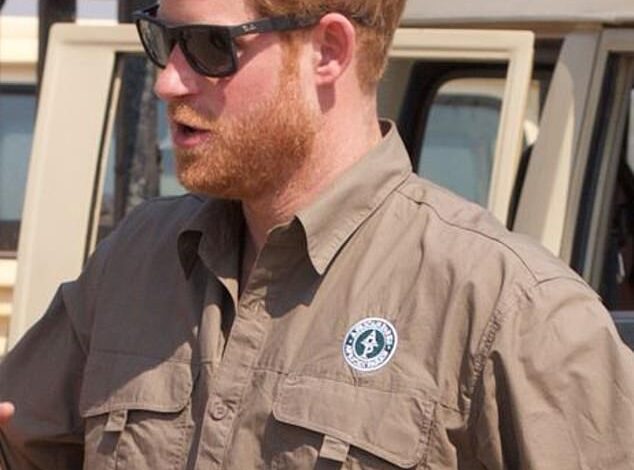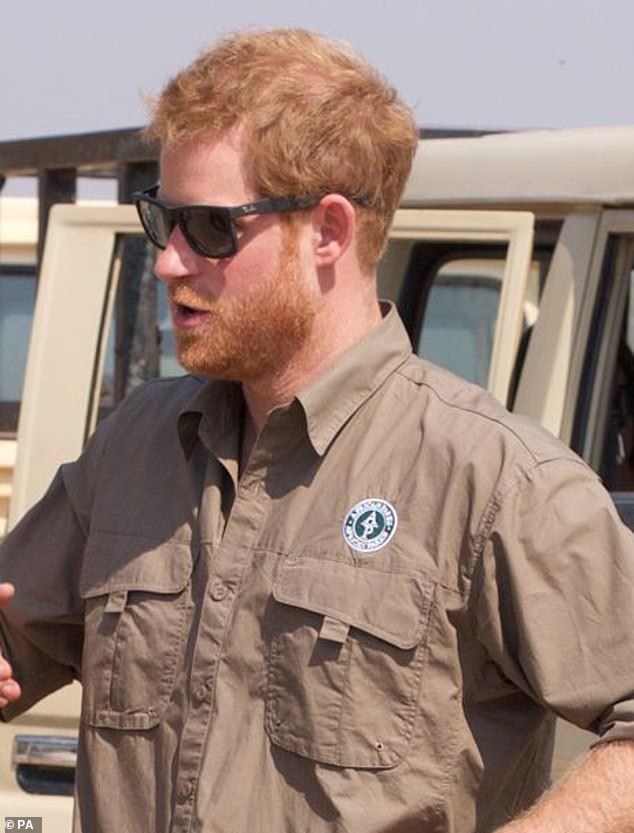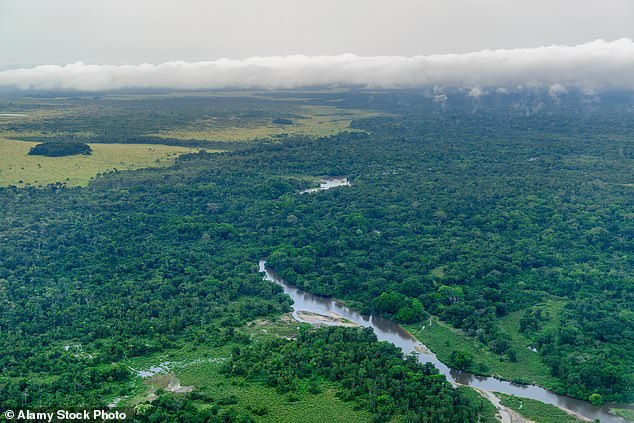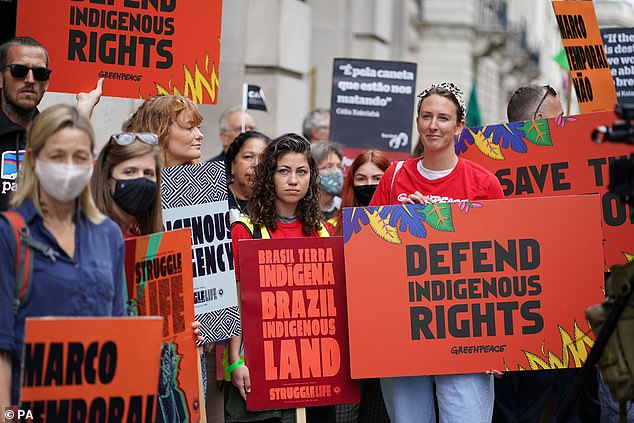FIORE LONGO: Human rights abuses are often funded with British donations

The Baka people are trapped in tragedy – one partly funded by Western donors and governments. The forest they cherish and have cared for as expert custodians for generations is no longer their home.
Following The Mail on Sunday’s powerful revelations, Survival International is launching a public campaign to urge Prince Harry, who states his commitment to social justice, to step down as a director of African Parks and to distance himself from an organisation complicit in allegations of appalling abuse of these forest guardians.
And we want donors, such as the EU, to withdraw support until the Baka are allowed to return to the park with land ownership rights recognised.
Of course, everything possible must be done to protect our precious environment, including forests under pressure from mining, logging and other industries. But there are deep problems with the way conservation is often carried out in many parts of the world.
On one side are people such as the Baka, whose intimate relationship with the forest and its abundant wildlife has made them nature’s remarkable guardians.

Prince Harry, seen here in Malawi, was the president of African Parks for six years before moving to its governing board of directors last year

African Parks rangers have been accused of widespread human rights abuses in the Kokoua National Park in the Republic of Congo

Survival International is an NGO that advocates for the rights of indigenous peoples around the world
On the other are national parks and their rangers – such as those managed by African Parks, an organisation founded by a Dutch billionaire whose firm had business links to South Africa’s apartheid state.
I have been told numerous stories of brutality and torture. These atrocities have been going on for years. We first raised them with African Parks’ management more than a decade ago.
Perhaps the charity’s donors are ignorant of what is really going on –just like the tourists who spend $9,690 for four-day trips to enjoy ‘Odzala Gorilla Discovery Camp’ in Congo’s Odzala-Kokoua National Park.
Survival International has gathered other appalling testimonies from indigenous people in countries from central Africa to south-east Asia – all cast on the scrap heap at the altar of conservation’s ‘Protected Areas’.
This uses a model of ‘fortress conservation’ with communities evicted from ancestral lands – and all too often terrorised and even killed by armed guards enforcing this system. Such cruelty is often justified on the basis that ‘humans’ – by which they mean local people – are considered a threat to the environment and that the indigenous people’s livelihoods are incompatible with protecting nature.
Yet there is incontrovertible evidence dating back millennia that local people such as the Baka are the best guardians of the natural world.
This is not just an issue of human rights. The Baka rely on the forest for their food, medicine and shelter. Their relationship with the forest is central to their way of life and identity.
Over countless generations, they have developed sophisticated conservation practices and environmental and botanic knowledge. It is no coincidence that 80 per cent of all the biodiversity on Earth is found on indigenous peoples’ lands.
The solution to protecting the natural world involves respecting and protecting their rights. But when conservation charity rangers target these people who are least responsible for environmental destruction, these international organisations fail to tackle the real roots of the problem: over-exploitation of natural resources and destruction of rainforests for profit, led by the industrialised world.
And the abuses against the Baka and other indigenous people are often funded with our taxes and donations, so we share responsibility.
If any rainforest is to survive for future generations, it will only be if indigenous peoples are allowed to return to their ancestral lands.
As they say: ‘The forest misses the Baka. The Baka belong to the forest. If there are many animals in the forest, it’s because there are Baka in the forest.’




